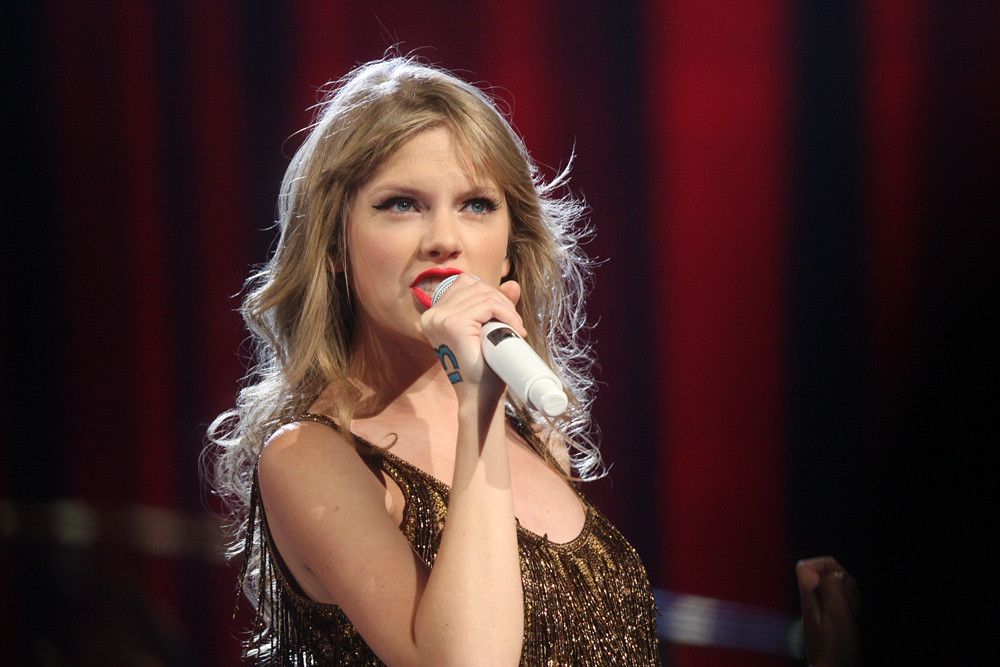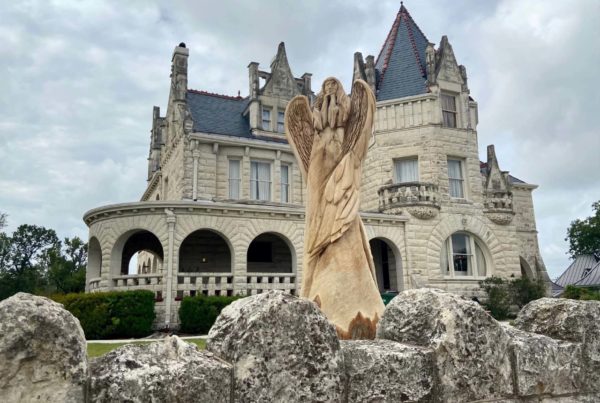With her 10th studio album set to release next month, Taylor Swift has already solidified herself as one of the most prolific artists of her generation.
Her long and storied career, which started in 2006 with the release of her first album, has been characterized by a transition from a teenage country singer to a global pop sensation. She’s also been the center of a number of high-profile media stories around her personal life – including public fights with Kanye West and record executive Scooter Braun.
Elizabeth Scala, a professor at the University of Texas – and a self-identified Swiftie (a Swift superfan) – is teaching a class focusing on the singer’s catalog and songwriting this semester. Scala spoke to the Texas Standard about how her class is going and the cultural impact of Swift’s music.
This transcript has been edited lightly for clarity.
Texas Standard: I’m guessing that there’s a similarity between your class and Taylor Swift concerts in that it’s probably standing room only at this juncture, if you have any standing room in that classroom. Is it pretty well-registered?
Elizabeth Scala: It is full. But right now this course is a freshman seminar, so it is full at 16. And I’m thinking about what Taylor Swift does as a songwriter. She’s a well-decorated songwriter. She’s a very good lyricist. And I’m having the students kind of think really hard about the kind of verbal play and figures that they see in Swift’s writing. And then I’m having them go to some really old traditional literature that they may or may not be familiar with. And they’re going to use what they do when they analyze Swift’s writing at that kind of level in detail, and then take it over to Shakespeare, Ben Jonson, Christopher Marlowe, Sylvia Plath, and look at what’s going on in the other literature as well.
Plath, Shakespeare, Marlowe – these are some of the greats. Are Swift’s music and lyrics of that caliber?
You know, it’s not really a course on literary value, but it is certainly a course on what makes literary value. And, you know, the students would say that they don’t read Shakespeare for fun, but they listen to Taylor Swift all the time. You know, she’s not a poet, so she’s not trying to write something that only appears on the page that you have to hear or understand only through looking at those words as they’re printed and as they’re visually laid out on the page, which is what a poet does. She’s also working with music.
I think you have to look at her writing as a songwriter, not as a poet. But there are certainly poetic aspects to the way she writes a song and constructs the narrative. She’s extremely famous for her bridges – the part of the song that moves between a couple of verses and a repeated chorus to the final verse that kind of concludes the song and takes it to another place. And her bridges, man, are they fantastic.














